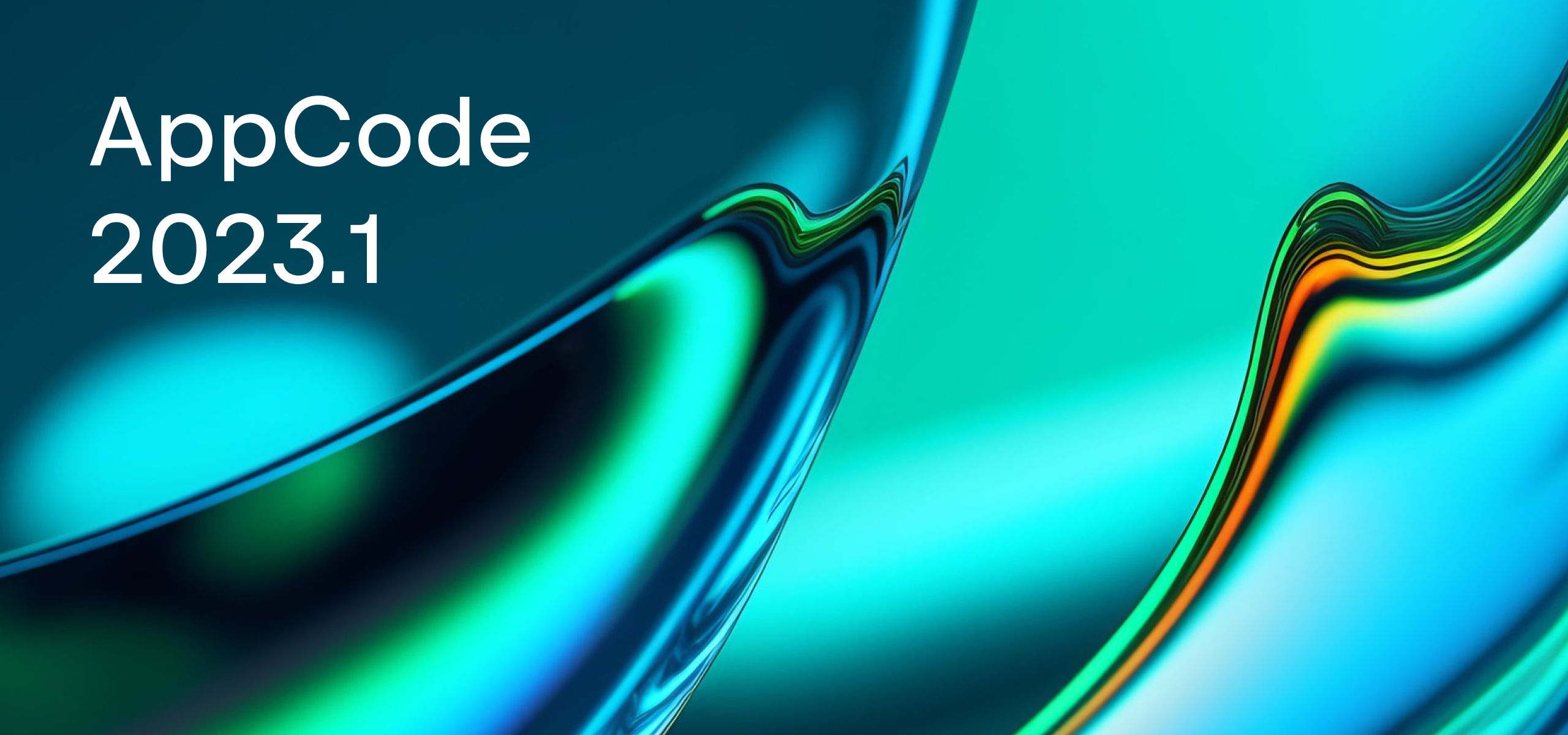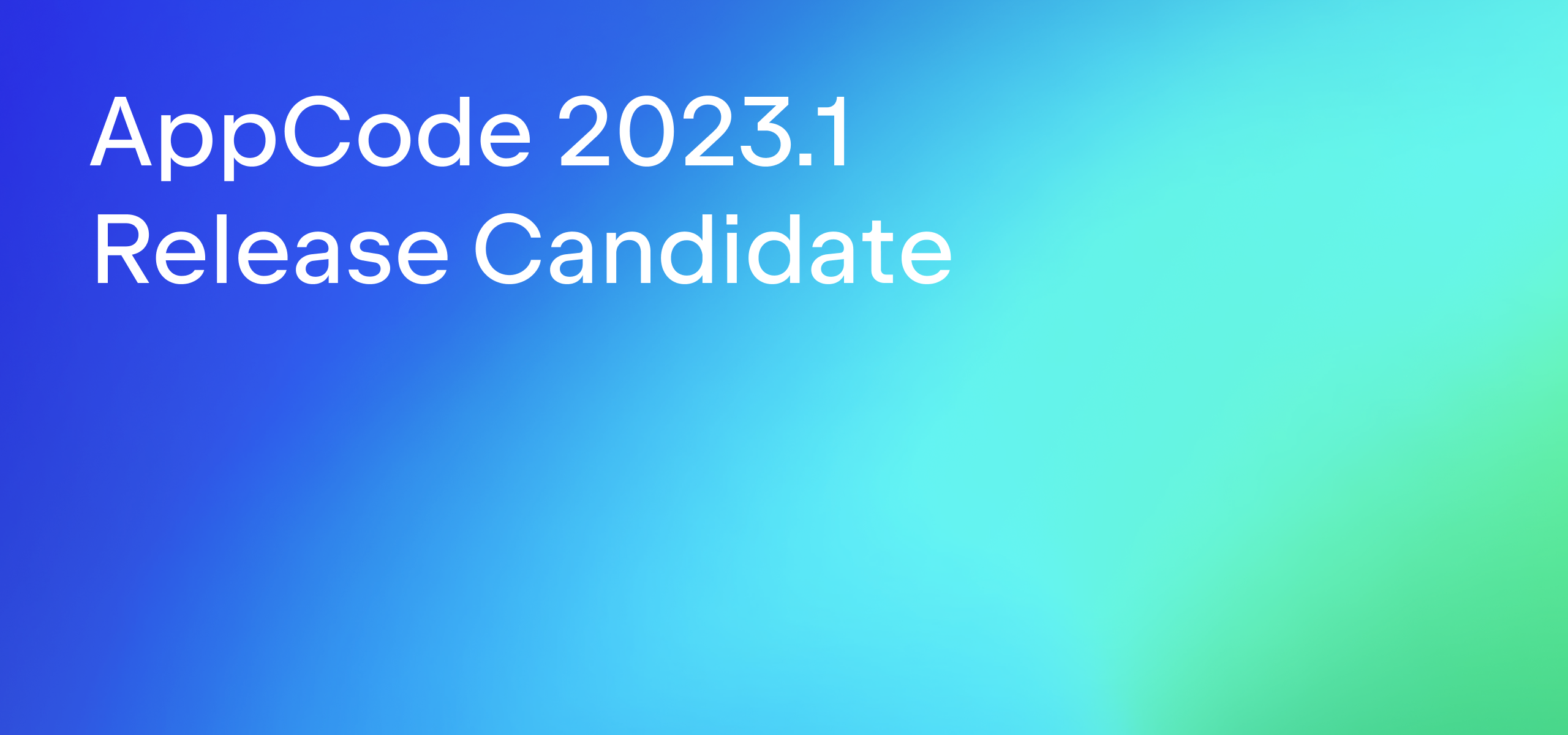AppCode 2022.2 Released
Today we are happy to announce the AppCode 2022.2 release!
The new version helps you analyze the structure of your application by generating UML class diagrams for Objective-C and Swift. It also improves code documentation, generation, and formatting, and is aligned with the latest Xcode versions and new Swift language features. The Kotlin Multiplatform Mobile plugin for AppCode expands the variety of supported projects to help you develop applications for Android and iOS more productively.
In this release:
- Swift and Objective-C language support improvements
- UML class diagrams for Swift and Objective-C
- Enhanced code documentation
- Updates to the Kotlin Multiplatform Mobile plugin
Language support
Swift support in AppCode stays aligned with the Swift language evolution. This often requires updates to both Swift and Objective-C support. This is the case with the concurrency interoperability with Objective-C, a set of features added in Swift 5.5. You can learn more about the language feature here on GitHub. From the AppCode user’s perspective, the changes are:
- Code resolve in Swift for Objective-C asynchronous functions now works correctly:

- Support is now available for actor interoperability with Objective-C.
- Various Objective-C attributes like
_Nullable_resultand__attribute__((swift_async_error(...)))are now handled correctly.
The Keyword any for existential types from Swift 5.6 is now supported in AppCode in code resolve and type checking, code completion and generation, and in code formatting:

AppCode 2022.2 enhances module handling by fixing issues with code resolve and introducing support for several modules in the extern module map.
Swift actors support was also improved in this version:
- AppCode 2022.2 can generate initializers for Swift
actors:
- Actor-isolated properties are no longer suggested when auto-generating
equalsandhashin anactor’s extension.
UML class diagrams
AppCode can now generate and show you UML diagrams for the classes and methods in your application. The class diagrams are available for Swift and Objective-C classes. They help you analyze the structure of your application by showing the types and their connections, methods, and fields.

Open diagrams, filter by visibility, and show categories (like Methods, Properties, Nested Types, etc.) by using the diagram’s toolbar, or use ⌘F12 to open the list of diagram elements and navigate between them:

Check out our online documentation for more details on the UML class diagrams in AppCode.
Code documentation
AppCode comes with a special reader mode which helps you see the comments in the code as regular text when reading a file. AppCode 2022.2 now applies basic syntax highlighting when showing documentation comments in the Quick Documentation popup or in reader mode:

In this release, we also fixed many issues in the code documentation, like incorrect formatting, wrongly ordered content, loss of data, redundant spaces, and empty lines.
Kotlin Multiplatform Mobile plugin
The Kotlin Multiplatform Mobile (KMM) plugin for AppCode helps you develop applications for Android and iOS using the unified Gradle project model. The new update expands the variety of supported projects.
- In this version, projects with the KMM framework attached via the
:<kmm_library_name>:embedAndSignAppleFrameworkForXcodeGradle task are supported. This will make the cross-resolve from Swift to Kotlin available for the linked KMM libraries. - Multi-window applications are now supported in the Apple gradle plugin.
- Applications for iPad devices configured via the target’s build settings in the Apple gradle plugin are now supported.
- Device orientation is now supported in the Apple gradle plugin.

Explore all of the new features in detail on our website and start your free 30-day evaluation to see them in action.
Your AppCode team
JetBrains
The Drive to Develop






